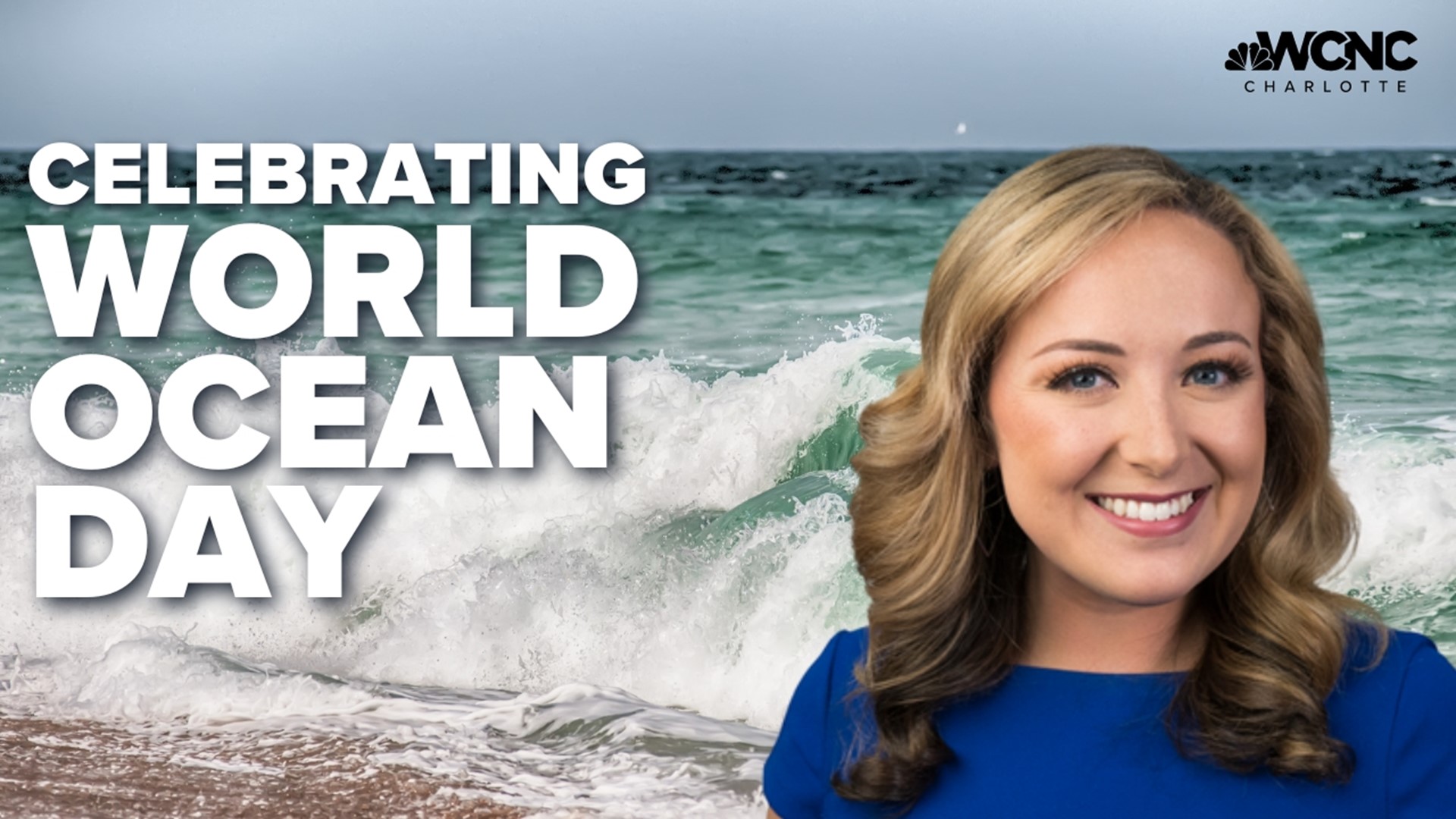CHARLOTTE, N.C. — June 8 is World Oceans Day. We know the ocean and beaches have a significant impact on tourism in the Carolinas, but expanding out, 70% of the world is covered by oceans. This means they have a significant impact on everyone across the globe.
Oceans play a key role in millions of people's livelihoods, food supplies for billions, hurricane formation, and climate.
According to Climate Central, oceans absorb carbon dioxide from the air and store billions of tons of carbon in the water, sediments, and marine life.
That carbon is measured in GtC or gigatonnes of carbon per year.
It can also absorb around 90% of the extra heat caused by carbon pollution.
Julie Pullen, who holds a doctorate in physical oceanography, is a founding partner and chief scientist for Propeller Ventures, a venture capital fund focused on ocean climate solutions.
She said not only can warm ocean waters cause rapid intensification for tropical cyclones, but it also disrupts life under the sea due to marine heat waves.
"The impacts to the ecosystems are the creatures that can move away will, but there are lots of organisms like coral reefs that are stationary, they can't move and get away from those conditions," Pullen explained. "Just because the fish can leave doesn't mean that where they go next, they're gonna find enough to sustain them."
Unlike heat waves out of water, marine heat waves are a recent phenomenon being tracked by scientists, according to Pullen.
For the latest weather alerts, download the WCNC Charlotte mobile app and enable push notifications.
She also explained that World Oceans Day is an opportunity to remind people of the benefits of oceans and why we should appreciate them. The best way is to think of it as a ripple effect -- how it impacts you, your family, your country, and eventually the world.
"If our planet crosses 1.5 degrees Celsius, some of those near-term potential tipping points in the climate system, all of them are localized in our oceans," she said. "So that's coral reef loss, polar ice loss, and the circulation shifts that come with that."
This information can sometimes seem daunting, but there are many ways humans can restore, protect, and better manage climate change's impact on our oceans.
Some of those efforts are sustainable management of fisheries, restoration of marine populations, and conservation of habitats.
The National Oceanic and Atmospheric Administration (NOAA) has an interactive tool for 'National Marine Protected Areas' which is one of many important solutions for our changing oceans; you can use the tool to see if your favorite spot along the Carolina coastline is included.
Contact Brittany Van Voorhees at bvanvoorhe@wcnc.com and follow her on Facebook, Twitter and Instagram.
WCNC Charlotte’s Weather IQ YouTube channel gives detailed explainers from the WCNC Charlotte meteorologists to help you learn and understand weather, climate and science. Watch previous stories where you can raise your Weather IQ in the YouTube playlist below and subscribe to get updated when new videos are uploaded.

